Table of Contents
The APTET Syllabus 2024 has been published on the official website of the Commissioner of School Education Andhra Pradesh (CSEAP), along with the official notification. Candidates preparing for the APTET Exam 2024 should visit the website to review and download the AP TET Syllabus 2024, or click on the links provided below.
With the release of AP TET July 2024, candidates are encouraged to begin their preparation. This article provides all the relevant links and information about the APTET Syllabus 2024. Continue reading to understand the importance of thoroughly reviewing the APTET Syllabus 2024.
APTET Syllabus 2024
Candidates preparing for the APTET 2024 Exam are advised to thoroughly review the APTET Syllabus 2024 to grasp its scope and details. A clear understanding of the Andhra Pradesh TET Syllabus 2024 is essential for completing it within the given timeframe. By carefully studying the intricacies of the APTET Syllabus 2024, candidates can develop an effective study routine and follow it more efficiently.
AP TET Syllabus 2024: Overview
The Andhra Pradesh Teacher Eligibility Test (APTET) is conducted by the Commissioner of School Education Andhra Pradesh (CSEAP). The APTET Exam 2024 is a state-level examination which is conducted online. For more information, check out the table below.
| AP TET Syllabus 2024 | |
| Name of the Examination | Andhra Pradesh Teacher Eligibility Test (APTET) |
| Exam Conducting Body | Commissioner of School Education Andhra Pradesh (CSEAP) |
| Level of Exam | State-Level |
| Mode of Application | Online |
| Mode of Examination | Online |
| Language of Medium | English and Language I were chosen by the candidate |
| Number of Papers |
|
| Duration of Examination | 2 hours and 30 minutes (150 Minutes) |
| APTET Exam Mode | Online |
| APTET Exam pattern |
|
| AP TET Syllabus |
|
| APTET Official Website | https://aptet.apcfss.in |
| Language | Kannada, Tamil, Odia, Hindi, Telugu, Urdu |
AP TET Exam Pattern 2024 For Paper 1 and Paper 2
Candidates preparing for the AP TET Exam 2024 should thoroughly review the exam pattern to understand important details like the marking scheme and the distribution of marks. Familiarizing themselves with these aspects will enhance their understanding of the AP TET syllabus and help them create effective strategies for each section of the exam. For details on the AP TET 2024 exam pattern for Paper-I (Sections A and B) and Paper-II (Sections A and B), please refer to the tables below.
- The APTET exam will be conducted online as a Computer Based Test.
- The duration of the exam is 2.5 hours (150 minutes).
- Candidates must take the exam in English and a language of their choice from Kannada, Tamil, Odia, Hindi, Telugu, or Urdu.
- The question paper will contain a total of 150 questions.
- Candidates will receive 1 mark for each correct answer.
- There is no negative marking for incorrect answers in the entrance exam.
AP TET Exam Pattern 2024 For Paper-I (A)
AP TET is typically conducted in two papers: Paper I for candidates intending to teach classes I to V (Primary Level), and Paper II for those aspiring to teach classes VI to VIII (Upper Primary Level). The questions are objective, with multiple-choice options. The AP TET Exam 2024 comprises five sections, each with 30 multiple-choice questions (MCQs), totaling 150 questions. Each section carries 30 marks, leading to a total of 150 marks for the exam. The sections include Child Development and Pedagogy, Language I (which can be Telugu, Urdu, Hindi, Kannada, Tamil, or Odiya), Language II (English), Mathematics, and Environmental Studies. Each subject is allocated equal weight, with each section contributing 30 marks to the overall total.
| Subject | Questions | Marks |
| Child Development and Pedagogy | 30 MCQs | 30 Marks |
| The language I (Tel/Urdu/Hindi/Kannada/Tamil/ Odiya | 30 MCQs | 30 Marks |
| Language II (English) | 30 MCQs | 30 Marks |
| Mathematics | 30 MCQs | 30 Marks |
| Environmental Studies | 30 MCQs | 30 Marks |
| Total | 150 MCQs | 150 Marks |
AP TET Exam Pattern 2024 Paper-I (B)
The AP TET syllabus for Paper 1 covers several topics including Child Development and Pedagogy, Language-I, Language, Mathematics, and Environmental Studies. The AP TET Paper 1 syllabus is quite similar for both Part A and Part B with only a slight difference in the Child Development and Pedagogy Syllabus. It is important to note that the Part A syllabus is for regular school teachers while the Part B syllabus is for Special Education teachers. The AP TET Exam 2024 consists of five sections, each with 30 multiple-choice questions (MCQs), totaling 150 questions for the exam. Each section is worth 30 marks, making the total score 150 marks. The sections include Child Development and Pedagogy (Special Education), Language I (options include Telugu, Urdu, Hindi, Kannada, Tamil, or Odiya), Language II (English), Mathematics, and Environmental Studies. Each section is equally weighted, ensuring that each contributes 30 marks to the final score.
| Subject | Questions | Marks |
| Child Development and pedagogy (in Special Education) | 30 MCQs | 30 Marks |
| The language I (Tel/Urdu/Hindi/Kannada/Tamil/ Odiya | 30 MCQs | 30 Marks |
| Language II (English) | 30 MCQs | 30 Marks |
| Mathematics | 30 MCQs | 30 Marks |
| Environmental Studies | 30 MCQs | 30 Marks |
| Total | 150 MCQs | 150 Marks |
AP TET Exam Pattern 2024 Paper-II (A)
The AP TET Exam 2024 Paper-II (A) consists of six sections, with a total of 150 multiple-choice questions (MCQs) and 150 marks. The sections include Child Development and Pedagogy with 30 MCQs worth 30 marks, Language I (Telugu, Urdu, Hindi, Kannada, Tamil, or Odiya) with 30 MCQs worth 30 marks, Language II (English) with 30 MCQs worth 30 marks, Mathematics with 60 MCQs worth 60 marks, Social Studies with 60 MCQs worth 60 marks, and Languages (Telugu, Urdu, Hindi, English, Kannada, Odiya, Tamil, or Sanskrit) with 60 MCQs worth 60 marks. Each section is designed to assess specific areas of knowledge and teaching aptitude, contributing equally to the overall score.
| Subject | Questions | Marks |
|---|---|---|
| Child Development and Pedagogy | 30 MCQs | 30 Marks |
| The language I (Tel/Urdu/Hindi/Kannada/Tamil/ Odiya | 30 MCQs | 30 Marks |
| Language II (English) | 30 MCQs | 30 Marks |
| Mathematics | 60 MCQs | 60 Marks |
| Social Studies | 60 MCQs | 60 Marks |
| Languages(Telugu/Urdu/Hindi/English/Kannada/Odiya/ Tamil and Sanskrit) | 60 MCQs | 60 MCQs |
| Total | 150 MCQs | 150 Marks |
AP TET Exam Pattern 2024 Paper-II (B)
The AP TET Exam 2024 Paper-II (B) features a total of 150 multiple-choice questions (MCQs) worth 150 marks. The exam includes four sections: Child Development and Pedagogy with 30 MCQs for 30 marks, Language I (Telugu, Urdu, Hindi, Kannada, Tamil, or Odiya) with 30 MCQs for 30 marks, Language II (English) with 30 MCQs for 30 marks, and Category of Disability Specialization and Pedagogy with 60 MCQs for 60 marks. Each section is aimed at assessing different aspects of teaching aptitude and subject knowledge, contributing to the overall score of the exam.
| Subject | Questions | Marks |
| Child Development and Pedagogy | 30 MCQs | 30 Marks |
| The language I (Tel/Urdu/Hindi/Kannada/Tamil/ Odiya | 30 MCQs | 30 Marks |
| Language II (English) | 30 MCQs | 30 Marks |
| Category of Disability Specialization and Pedagogy | 60 MCQs | 60 Marks |
| Total | 150 MCQs | 30 Marks |
APTET Syllabus 2024 For Paper I & II
Candidates must check out the AP TET Syllabus 2024 for Paper I & II. The AP TET Syllabus for Paper I & II is divided further into two parts- Part A and Part B (Special Educators). In the following section, candidates will find the detailed AP TET Syllabus for Paper I (Classes 1 to 5) and Paper II (6 to 8).
AP TET Syllabus 2024 For Paper I Child Development and Pedagogy (Part A)
Development, Growth & Maturation – Concept & Nature, Differences between Growth and Development
- Principles of development and their educational implication
- Factors influencing Development – Biological, Psychological, Sociological, emotional
- Dimensions of Development and their interrelationships – Physical & Motor, Cognitive
- Emotional, Social, Moral, and Language relating to Infancy, early Childhood, late Childhood, adolescence
- Understanding Development – Piaget, Kohlberg, Chomsky, Carl Rogers, Erikson
- Individual differences – Concept, Types of individual differences (Intra & inter) Factors of individual differences ( heredity & environment)
- Factors influencing individual differences in the areas of Attitudes, Aptitude, Interest, Habit, intelligence, creativity,
- Values, level of aspiration, self-concept, achievement – Intelligence: Concept and meaning of intelligence, Definitions, Types of intelligence, Theories of Intelligence, Aptitude, Interest, Attitude, Creativity, Thinking and Reasoning.
- Metacognition:- Meaning, Concept, Nature, uses, Aspects in metacognition process, experimental learning
- Development of Personality – Meaning and concept of personality, definitions, characteristics, elements and factors of personality, theories of personality, assessment of personality(Projective and Non-Projective)
- Mental health, adjustment & behavioral problems, conflicts, frustration, tension, anxiety, mall adjustment, a defense mechanism.
- Methods and Approaches of Child Development Introspection, Observation, Interview, Case Study
Experimental, Cross-sectional, and Longitudinal Developmental Tasks and Hazards.
Understanding Learning
- Learning – Meaning, Concept, Definitions, Characteristics of Learning, Types of Learning, determinants of learning, Readiness, Maturity & Motivation, Learning curves.
- Factors of Learning – Personal and Environmental • Dimensions of Learning – Cognitive, Affective, and Psycho–Motor.
- Motivation and Sustenance -its role in learning.
- Concept: Meaning, Definition, Formation of concept, Classification of concept, Types of concept, Concept Development, Role of teacher in conceptual development.
- Perception:- Concept, Meaning, Definitions, the process of perception, Characteristics, Laws of perceptual organization, Influencing factors of perception.
- Memory & Forgetting
- Transfer of Learning- Approaches to Learning and their applicability: Behaviorism (Skinner, Pavlov, Thorndike), Gestalt (Kohler, Koffka), Observational (Bandura), Constructivism (Piaget, Vygotsky), Bruner’s theory of instruction, Experimental learning.
Pedagogical Concerns
- Teaching and its relationship with learning and learner.
- Learners in Contexts: Situating learners in the socio-political and cultural context
- Children from diverse contexts — Children With Special Needs (CWSN), Inclusive Education.
- Understanding of pedagogic methods — Enquiry-based learning, Project-based learning, Survey, Observation and
- Activity-based learning, Cooperative and collaborative learning. Individual and Group learning
- Issues and concerns concerning organizing learning in the classroom like Study habits, Self-learning, and Learning to learn skills.
- Organizing learning in heterogeneous classroom groups Socio-economic background
- Abilities and Interests.
- Paradigms of organizing learning are centric, Subject, and Learner centric.
- Theory of instruction – Bruner
- Teaching as Planned Activity — Elements of Planning
- Phases of Teaching — Pre active, Interactive, and Post active
- General and Subject related skills, competencies required in teaching, and attributes of a good facilitator.
- Learning Resources — Self, Home, School, Community, Technology.
- Classroom Management: Role of a student, teacher, the Leadership style of teacher, Creation of on threatening learning environment, Managing behaviour problems, Guidance & Counseling, Punishment and its legal implications, Rights of a child, Time Management.
- The distinction between Assessment for Learning & Assessment of Learning
- ICT
AP TET Syllabus 2024 For Paper I Child Development and Pedagogy (Part B, Special Education)
Child Development
- Nature of Child Development
- Principles and approaches to growth and development
- Theories of Learning l Methods of Child Study
- Individual differences
Pedagogy in Special Education
- Characteristics and educational needs of Children with Special Needs
- Types and approaches to the assessment of Children with Special Needs
- Curriculum Development and Curricular Adaptations
- Concept of Individual Educational Plan and Individualised Family Services Plan
- Teaching strategies for Children with Special Needs
Education Commissions and Policy (School Education)
- Constitutional provisions on education that reflect National Ideals: Equality, liberty, secularism, and social justice
National Commissions and Policies: Education Commission (1964), NPE and POA (1986, 1992), National Policy for Persons with Disabilities (2006) - National Acts: RCI Act, 1992, PWD Act, 1995, NT Act, 1999, RTE Act (2009 & 2012). RPWD Act 2016
- Programmes and Schemes: IEDC (1974, 1983), SSA (2000, 2011), RMSA, 2009, IEDSS, 2009
- International Conventions and Policies: Salamanca Declaration and Framework, 1994; UNCRPD, 2006; MDG, 2015; INCHEON strategies
AP TET Syllabus 2024 Paper I Maths (Part A & B)
- Numbers
- Mensuration
- Geometry
- Data Handling
- Algebra
- Arithmetic
- Pedagogy
AP TET Syllabus 2024 Paper I Environmental Studies (Part A & B)
- Living World
- Life processes
- Natural Phenomena
- Transportation and Communication
- Professions and Services
- Our Environment
- Our Universe
- Production Exchange and Livelihoods
- Political Systems and Governance
- Social Organisation and Inequities
- Religion and Society
- Culture and Communication
- Pedagogy
Why Read the AP TET Syllabus 2024?
The candidate will be able to understand the extent of the content they need to cover by going through the AP TET Syllabus 2024. It will help the candidates to formulate a routine for their preparation for the APTET Exam 2024. The candidates will be able to strategize their study plan minutely and precisely when they understand what and how much they have to prepare for the APTET Exam 2024. They will be able to keep track of their progress with the AP TET Syllabus 2024 if they check it regularly.
Download AP TET Syllabus PDF
In the following table, the candidates will find the APTET Syllabus PDF links. The candidates will have to click on the link adjacent to the APTET Syllabus Paper mentioned.
Download AP TET Syllabus 2024 PDF
| Important Link Related to AP TET 2024 | |
| AP TET Eligibility Criteria | AP TET Syllabus |
| AP TET Previous Year Question Paper | AP TET Admit Card |
| AP TET Exam Centre | AP TET 2024 |

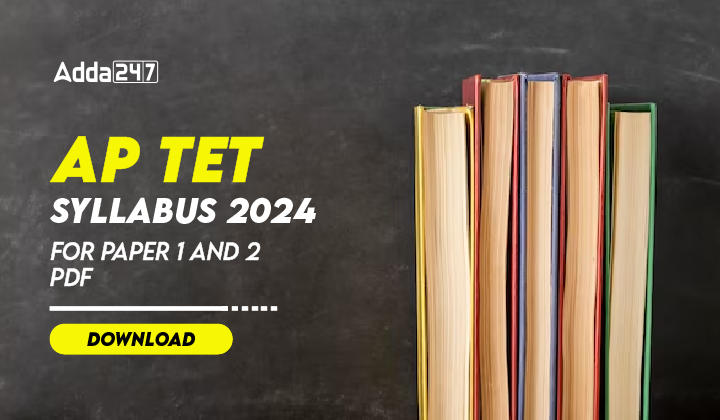
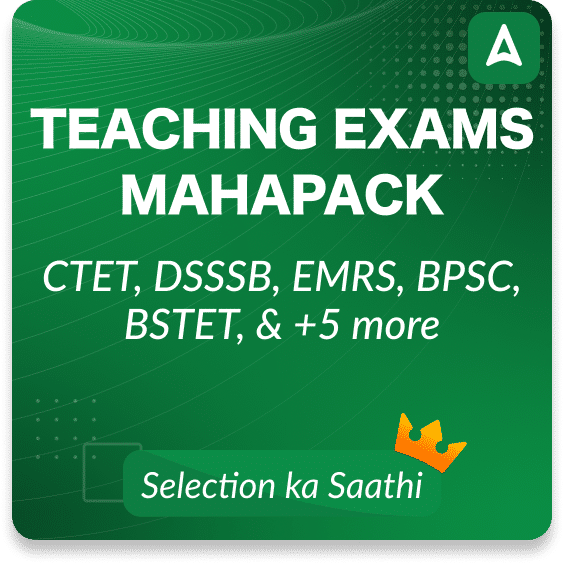

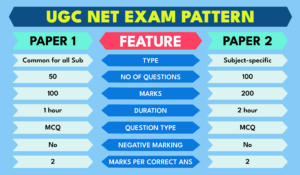 UGC NET Exam Pattern 2025 for Paper 1 an...
UGC NET Exam Pattern 2025 for Paper 1 an...
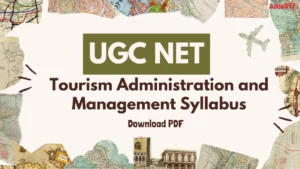 UGC NET Tourism Administration and Manag...
UGC NET Tourism Administration and Manag...
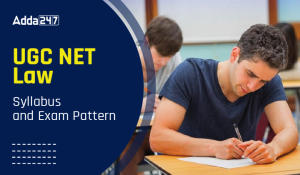 UGC NET Law Syllabus 2025 and Exam Patte...
UGC NET Law Syllabus 2025 and Exam Patte...














